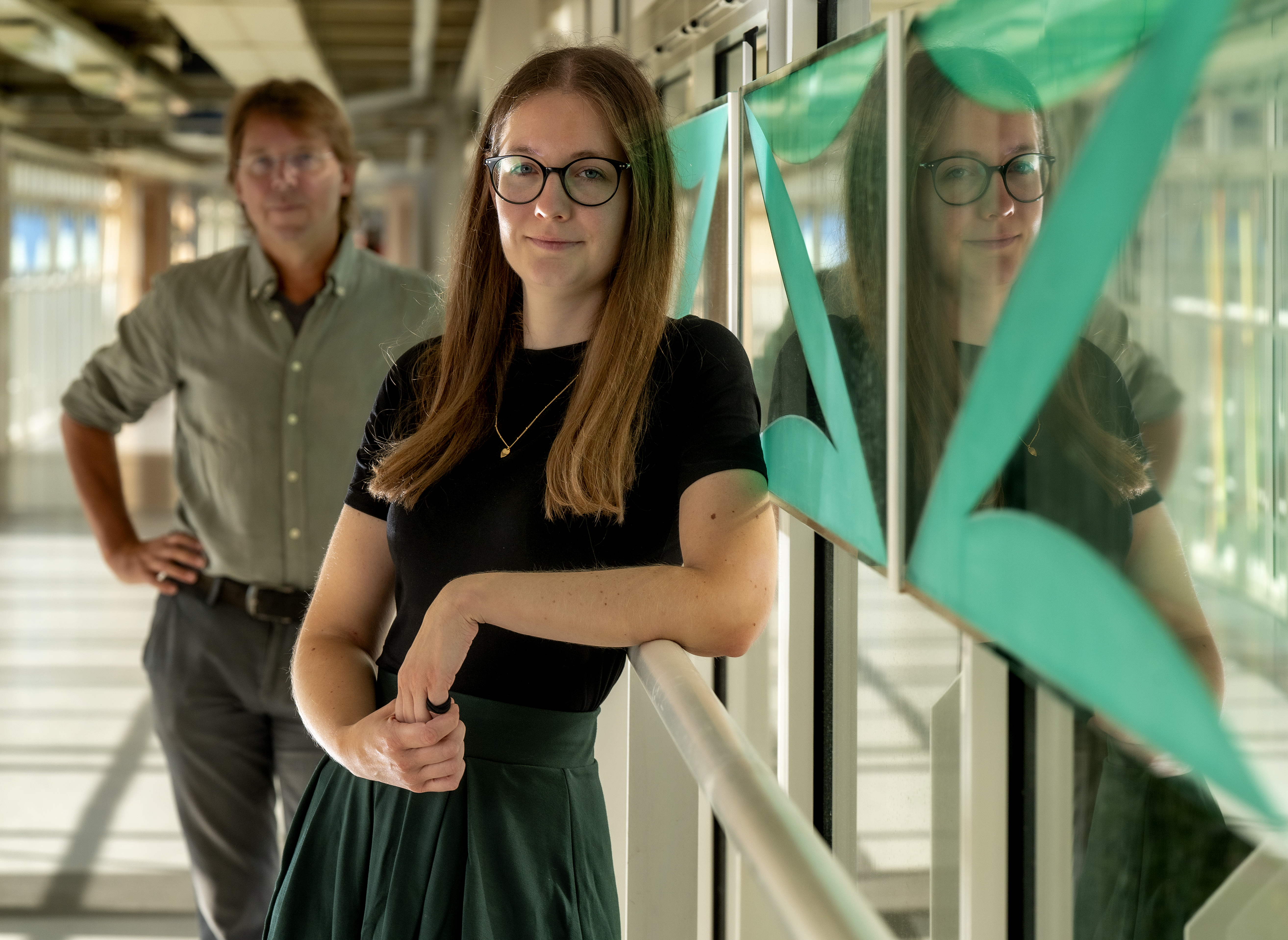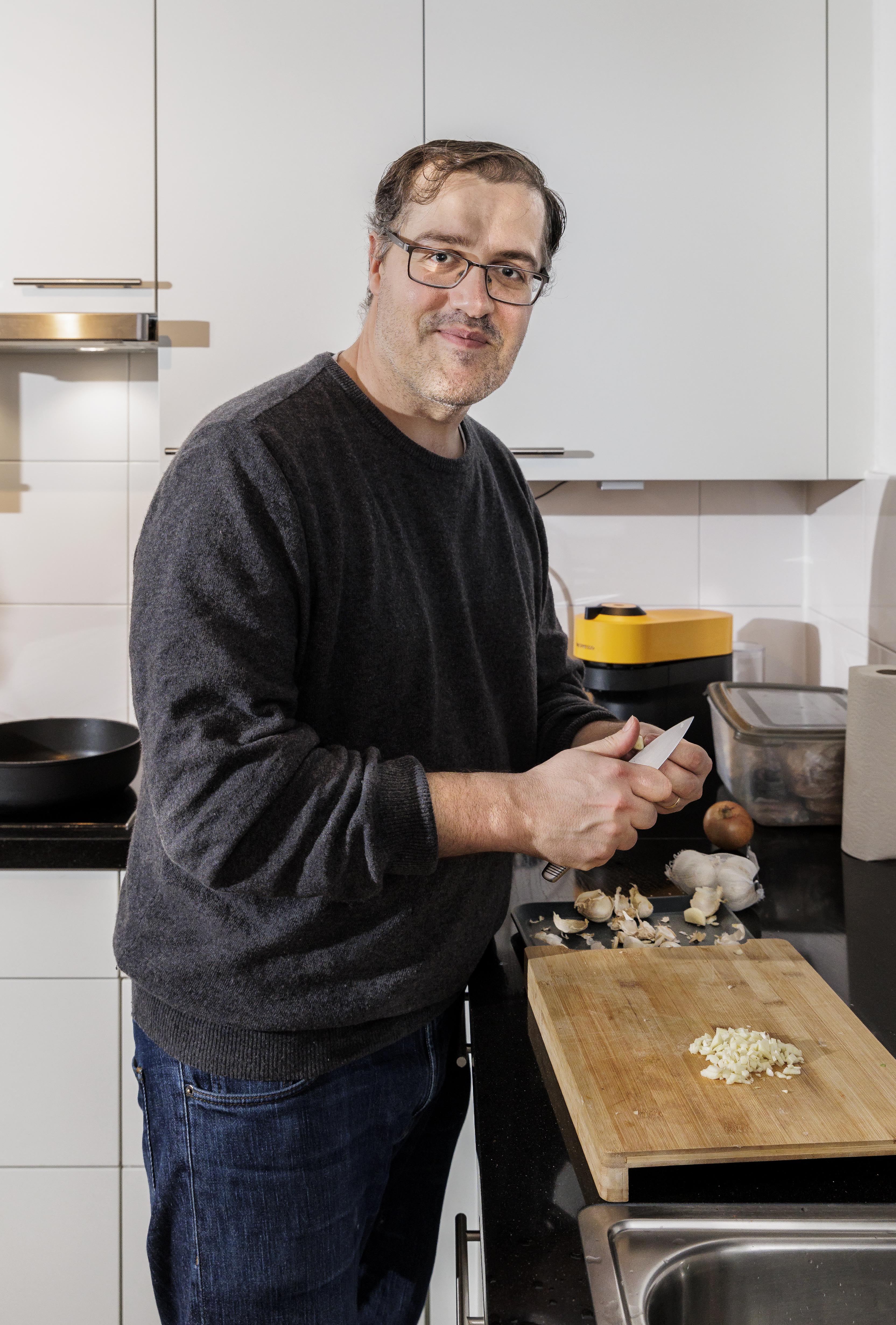Performance-enhancing pill
Increasing numbers of young people reportedly make regular use of low doses of LSD or other illegal substances to improve their cognition. Disquiet among parents and educational institutions is growing. Nadia Hutten investigated this phenomenon during her PhD, supervised by Professor Jan Ramaekers. How dangerous is this type of ‘microdosing’? And does it actually enhance students’ performance?
No, Hutten has never used drugs to improve her own mood or cognition. Nor does she personally know anyone who does. Yet this type of drug use lies at the heart of the research for which she recently obtained her PhD. “I kind of fell into this field, building on interesting previous projects at the Faculty of Psychology and Neuroscience,” she says.
Cocaine and creativity
Hutten investigated whether students actually function better after using drugs. Word has it that cocaine makes you more creative, or that a microdose of LSD helps you study faster. But is it true? “Not per se,” says Hutten. She asked healthy volunteers between the ages of 18 and 30 to perform various tasks after taking cocaine, cannabidiol, LSD or a placebo. “Only a minority of participants reported feeling or performing significantly better. That being said, we did measure a subtle improvement in some people’s responsiveness while performing the tasks.”
“Nadia’s research demonstrates once again that drugs affect everybody differently,” says her supervisor Jan Ramaekers. “We should point out, however, that this study wasn’t double-blind. Some participants were aware they’d been given either a placebo or drugs; the resulting expectation can influence what they report.”

Nadia Hutten chose Maastricht University for its Problem-Based Learning approach. She obtained her bachelor's in Health Sciences and master's in Neuropsychology at the Faculty of Psychology and Neuroscience. Her PhD dissertation is entitled ‘With a little help from my “friends”: The mood- and cognition-enhancing effects of illicit substances.’
Just a coffee then
Research like Hutten’s can shed light on the actual impact of low-dose drugs, something we still know little about. How dangerous is regular use? And does that danger extend to the unlawful use of medicines, such as Ritalin? “Although long-term data is lacking, we don’t expect microdosing psychedelics like LSD to cause long-term harm,” Ramaekers says. “We do know that abuse of other substances, such as amphetamines, can lead to health damage. We see less danger in the use of LSD: it’s not a toxic substance and is known to be relatively safe. At the same time, we don’t expect people to perform better after a low dose of LSD than after a cup of coffee. The effects are minimal.”
New claims
Society has long been preoccupied with the downsides of drugs. In recent years, however, attention has turned to potential upsides and clinical applications: the use of cannabis as a painkiller, for example, or mushrooms as antidepressants. “These developments give rise to a more positive view of drugs, which in turn results in new uses, such as microdosing psychedelics when studying,” Ramaekers says. “It’s important to respond to these new claims and practices from a scientific perspective. We have to acknowledge their presence, not immediately dismiss them as nonsense, and above all examine them with a critical eye.”
Distorted picture
With rising public interest in the topic, the media has begun to report more frequently on drugs to improve cognition. These messages sometimes present a distorted picture. “One recent headline reported that 20% to 30% of students use cognition-enhancing drugs, but that’s not systematic use,” Hutten says. “It’s mainly students who’ve tried it to cope with study stress or for the sake of experimentation. We don’t see that as a major problem in society. But it can be a signal for university administrators to consider issues such as whether the study load is too intense.”
“We need to communicate transparently about LSD microdosing,” Ramaekers adds. “All the media attention for the potential applications of microdosing psychedelics creates false expectations. The first controlled studies, like Nadia’s, show that the effects are negligible. But few publications report on this and thereby temper users’ expectations. The media and research institutes have an important role to play here. People need a realistic picture of the effects of a low dose of drugs, so they can weigh up the pros and cons for themselves.”
Not mapped out
How does Hutten look back on her PhD research? “It was an instructive process, thanks in part to Jan and my two other supervisors. Jan in particular taught me to view things from a broader perspective.” Ramaekers is satisfied too. “Nadia has developed both as a scientist and as a person.”
Hutten’s work offers ample opportunities for follow-up research. “We could zoom in on the clinical applications of microdosing drugs, or on the impact of low doses on different types of productivity or creativity. I’m also working on a study with older participants, instead of students,” she says. In other words, there is no shortage of work to be done. And after that, Hutten hopes to stay in the world of research. “Which is definitely not to say my career is already mapped out.”
Text by: Milou Schreuders
Photography by: Harry Heuts

Jan Ramaekers is professor of psychopharmacology at Maastricht University. His research group focuses primarily on the relationship between drug use and behaviour. Ramaekers studied psychology in Groningen, specialising in experimental psychology. In 1989 he relocated to UM, where he was closely involved in the establishment of the Institute of Human Psychology and the Faculty of Psychology and Neuroscience.
Also read
-
David Baião Barata was born and raised in Castelo Branco, in eastern Portugal. His mother cooked typical Portuguese cuisine: hearty soups, lots of meat, everything doused in olive oil. It was only during his studies in cell and molecular biology in Lisbon that he began cooking for himself. And it...
-
In recent years, there has been quite some debate surrounding the value of rakings. So the question is: do university rankings really matter that much? Fair question. In this article, SBE’s Dean Mariëlle Heijltjes and SBE’s Associate Dean Gaby Odekerken weigh in on the subject.
-
When she first laid eyes on the AGA cooker during the viewing five years ago, she knew the house was meant to be hers. To Alexx Allen-de Rijk, who grew up in the United States and England, this iconic stove brand is the epitome of home comfort. Her best friend Pip’s parents had one. “When we came...
- in Human interest
- in Featured


